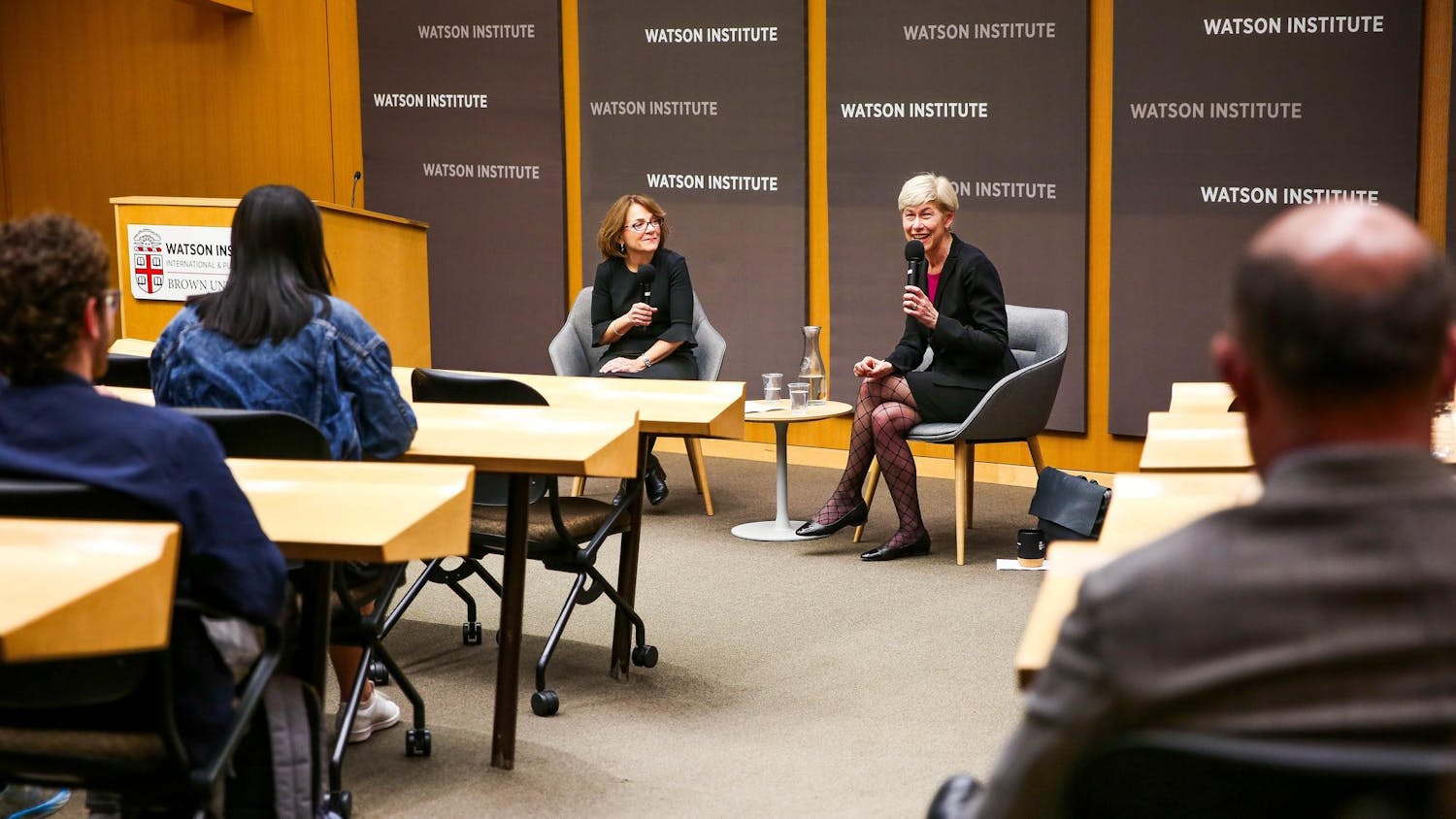A watchdog group chastised the University for not taking action against a professor accused of academic dishonesty in a letter to the National Institutes of Health.
On Nov. 29, the Project on Government Oversight, a nonpartisan independent watchdog group, sent a letter to the NIH requesting more action be taken against ghostwriting in academic research. The letter specifically referred to the alleged ghostwriting of a published article on a study headed by Professor of Psychiatry and Human Behavior Martin Keller.
The letter urges the NIH to take action in order to "strengthen scientific integrity."
Paul Thacker, investigator at the group and co-writer of the letter, told The Herald the NIH should "start cutting off funding of these researchers" and "fund seminars on ghostwriting and ethical behavior in research."
In addition to requesting action from the NIH, the letter also faults Brown for a lack of response concerning Keller's controversial practices.
"Despite the multiple public revelations, Brown University has done nothing," the letter said.
The study in question, called Study 329, was testing the efficacy of a drug called Paxil in treating major depression in adolescents.
While the 2001 study said there was evidence that the drug was efficient and safe, the study was later found to be flawed, according to the letter's authors. "A mere two years later, the United Kingdom government warned British physicians to not prescribe Paxil for children due to fears of potential suicide. In May 2004, our own FDA issued a similar warning," they wrote.
According to a 2008 Herald article, some alleged that the researchers had suppressed data by removing cases that showed increased suicidal tendencies in children who took the drug.
The article also may have been ghostwritten by an employee of the company that prepared the manuscript on behalf of GlaxoSmithKline, which produced the drug being tested, The Herald reported.
According to the watchdog group's letter, the allegations against Study 329 have not been hidden from the public, as they have been shown in a BBC documentary, as well as in BBC online reporting and the book "Side Effects" written by Boston Globe reporter Alison Bass.
"Someone (at Brown) should be talking about it, because the rest of the world is talking about it," Clinical Associate Professor of Medicine Roy Poses '73 MD'78 told The Herald in 2008.
According to Thacker, members of the watchdog group went to the NIH in person and handed in a copy of Bass' book. The person at the NIH who received it was "stunned that Martin Keller was still receiving funding," Thacker said.
"Brown has never responded to any of the allegations," he said, but has "just run in the opposite direction."
Thacker said Brown should hold a "credible investigation" into the allegations against Keller.
"The University takes seriously all issues relating to faculty research," Provost David Kertzer '69 P'95 P'98 wrote in an e-mail to The Herald.
"Although we do not comment on individual personnel, whenever we receive substantive concerns about the conduct of research, the University reviews relevant information and addresses any resulting concerns through its internal processes in a timely manner," he wrote, adding that "the University also regularly updates its policies and practices to insure that they are consistent with federal guidelines and other nationally recognized best practices."
A Georgetown professor said ghostwriting is a widespread problem. "Many physicians and researchers have put their names on papers that they do not deserve to be authors of," said Adriane Fugh-Berman, associate professor at Georgetown University School of Medicine, who has published many academic articles about ghostwriting.
"This is really only the tip of the iceberg," she said.
Fugh-Berman recommended that academic medical centers change their policies and put in place stronger penalties for ghostwriting.
In order to prevent ghostwriting in the future, Fugh-Berman said, specific questions should be asked about who is credited in a paper, creating a policy of "not having your name on the paper unless you fulfilled the criteria for authorship."
If this were a student, he would probably have been kicked off campus, Thacker said, but for a tenured faculty member, administrators "look the other way."
"Why are young adults held to a stricter standard of ethics than grown adult men in their 50s and 60s?" Thacker asked.
"Academics should be held to the same standards as students," Fugh-Berman said.




